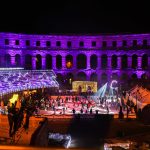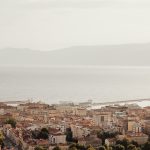ZAGREB, December 13, 2019 – Croatia wants to intensify communication on European topics so that citizens are acquainted with them, and Europe is a plus for Croatia, not a minus, Prime Minister Andrej Plenković said on Friday.
He was speaking to Croatian reporters in Brussels at the beginning of the second day of an EU summit.
Commenting on European Council conclusions which task Croatia with preparing the Council’s position on the Conference on the Future of Europe, Plenković said the upcoming conference was not a one-off event but an inclusive process in which the Commission, the Council, the European and national parliaments and everyone interested would participate.
In the conclusions which member states’ heads adopted this morning, the European Council “asks the Croatian Council Presidency to work towards defining a Council position on the content, scope, composition and functioning of such a conference and to engage, on this basis, with the European Parliament and the Commission.”
According to the conclusions, EU leaders wish to give priority to implementing agreed policies and delivering concrete results, and not to reforming institutions, which would require amending agreements, which in turn would mean little to citizens.
“The European Council recalls that priority should be given to implementing the Strategic Agenda agreed in June, and to delivering concrete results for the benefit of our citizens. The Conference should contribute to the development of our policies in the medium and long term so that we can better tackle current and future challenges,” the conclusions say.
EU leaders supported the goal that Europe become climate neutral by 2050, to which Poland has not been able to commit at this moment.
“The compromise reached is sustainable. What is important is that Croatia wants to be part of Europe and of global activities which keep up with what is important for environmental protection, for reducing all possible pollution, and we expect climate, the number one topic globally, to be in the focus of our presidency,” Plenković said.
Adjustment to ecological transition costs some countries a lot, some a little less, and the position of Western European countries is not the same as of those in the East, he added.
“The longer you have been in democracy and in the West, the longer you’ve had a bigger chance to develop, the more you’ve adjusted your industry to environmental protection demands, the fight against climate change. The shorter you’ve been economically strong to be able to keep up with the process, you need more time, the more it costs you, especially if you are a big country whose industry requires adjustment that costs,” said Plenković.
EU leaders will discuss climate change again next June, by which time the Commission is expected to come out with bills related to the Green Deal which the Commission presented on Wednesday. This envisages the establishment of a Just Transition Fund.
Today, EU leaders will discuss Brexit after Prime Minister Boris Johnson’s Conservative Party won a majority in Thursday’s election, which means that the UK is certain to leave the EU on January 31.
This election “has given us clarity, the prerequisites have been created to ratify the withdrawal agreement and after January 31 Great Britain will no longer be a member state. This clarity is the most important thing and now we should accede to drawing up a negotiating framework for an agreement on future relations,” said Plenković.
More news about Croatia and the EU can be found in the Politics section.







